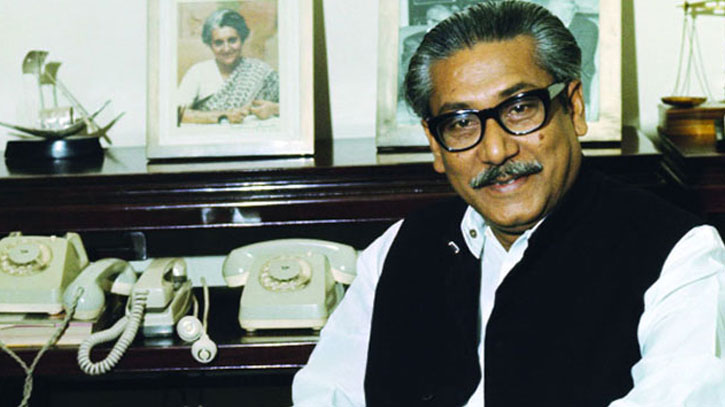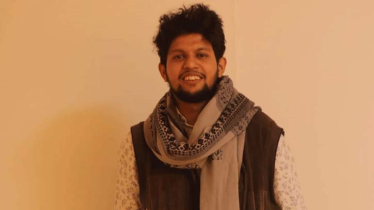
Bangabandhu Sheikh Mujibur Rahman
The neglect of the rights of Bengalis and the disregard of their voices in Pakistan's political landscape under successive military regimes led to the tapering off or redefinition of democracy in the country. Such coercive policies only served to belittle democracy in the name of its basic democracy. Against this backdrop, Bangabandhu Sheikh Mujibur Rahman emerged as a scriptwriter of independence for a nation that had never been ruled by Bengalis. He wrote a script for a drama and craftily forced the Pakistanis to play a role that he wanted as the director of the drama.
Extraordinary leadership has always played a significant role in shaping history, and Bangabandhu Sheikh Mujibur Rahman was a leader who made history in Bangladesh. He was not only a Bangladeshi politician and statesman but also known as the "leader of the leaders."
Friday (17th March) is the 103rd birth anniversary of the Father of the Nation, Bangabandhu Sheikh Mujibur Rahman, who was born on this day in 1920, in Tungipara, Gopalganj.
Mujib was born to an ordinary family at Tungipara but showed potential for leadership from an early age. He became involved in politics during his school years and was mentored by Huseyn Shaheed Suhrawardy. He gradually grew as the torchbearer of the Bengali nation and emerged as the driving force behind Bangladesh's independence.
It is a reality of history that Bangladesh would not have gained freedom without the leadership of Mujib. He worked tirelessly to bring about a sense of unity and purpose to the people of Bangladesh, inspiring them to fight for their rights and dignity. His vision and leadership not only led to the liberation of Bangladesh but also laid the foundation for a new nation that would be built on the principles of democracy, freedom, and social justice.
Sheikh Mujibur Rahman was a charismatic political leader who was able to captivate and rally large crowds with his emotional speeches. The Sunday Times had described him as a "poet of politics," while a columnist from The Sunday Observer had noted his physical features, including his tall stature, handsome appearance, and resounding voice that could mesmerize his followers.
Bangabandhu's leadership qualities were evident from an early age when he distributed rice among famine-stricken people in 1943, without any prior knowledge of his father's stockpile. Over time, he grew to become a leader of the masses and played a significant role in leading his nation to its most glorious moment in history.
However, Sheikh Mujib was arrested multiple times for his political activism between 1948 and 1952, including participation in a general strike to recognize Bangla as a state language.
In 1954, he led protests against Ayub Khan's martial law dictatorship and became the General Secretary of the Awami League in 1955. Mujib's active role in these movements propelled him to the forefront of Bengali leadership.
He proposed the historic six-point charter of demands in 1966, which led to his imprisonment on charges of sedition in the 1968 Agartala Conspiracy Case. Under his leadership, the movement for autonomy in East Pakistan evolved into a struggle for self-determination.
In March of 1971, Mujib began the non-cooperation movement and gave a memorable speech at Dhaka's Racecourse Maidan calling for independence. He was arrested by the Pakistan Army after they began their genocide of Bengalis on the night of Mar 25. However, before his capture, he declared Bangladesh independent from Pakistan on Mar 26. Mujib remained imprisoned throughout the nine-month war that followed but was made president of the exiled war-time government that took oath at Mujibnagar.
With the sacrifice of 3 million lives, Bangladesh was liberated on December 16, 1971. Mujib returned home on January 10, 1972, and worked to reconstruct a new nation devastated by war.
In 1975, he announced a national programme for economic freedom and formed Bangladesh Krishak Sramik Awami League (BKSAL), prohibiting the activities of all other political parties. As the president, he was assassinated by a group of army officers who stormed into his Dhanmondi residence on August 15, 1975.
TDM/SNE








